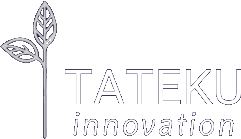The wood industry is at a crossroads, characterised by technological innovation and the urgent need to tap into new resources. While climate change is forcing more and more industries to adapt, the wood industry has a key role to play in the transition to a climate-neutral future. Sustainability, digitalisation and innovative technologies are no longer options, but necessities. TATEKU Innovation is at the forefront of this change, creating ground-breaking solutions that are transforming the entire value chain.
Digitalisation: the use of AI and digital twins
Digitalisation has revolutionised every industry in recent years, and the wood industry is no exception. Digital twins are one of the most exciting technologies now entering the woodworking industry. A digital twin is an exact digital replica of a physical system, be it a machine, a production process or an entire factory. TATEKU Innovation uses this technology to make processes more efficient, conserve resources and recognise sources of error at an early stage.
One example: by using AI-supported simulations, the production process of a pyrolysis plant can be monitored and optimised in real time. This not only leads to better product quality, but also to a significant reduction in production errors and energy consumption. This type of process control takes the wood industry to a whole new level and demonstrates the enormous potential of digitalisation.
Sustainability through innovative technologies
Sustainability is not just a buzzword, but a central focus of the entire wood industry. TATEKU Innovation develops technologies that replace fossil raw materials with sustainable alternatives. Pyrolysis plants that convert biomass into valuable products such as green carbon and bioliquids are a prime example of this.
Green Carbon is a high-carbon material that can be used in agriculture and the construction industry. It stores CO₂ in the long term and thus actively helps to combat climate change. Bioliquids, on the other hand, are biogenic substitutes for fossil fuels and are used in the chemical industry and in the production of sustainable aviation fuel (SAF). Such technologies ensure that the wood industry not only produces sustainably, but also actively contributes to solving global environmental problems.
Automation in forestry
The forestry industry is under enormous pressure to adapt to new climatic conditions and economic requirements. TATEKU Innovation has set itself the task of supporting this change through the use of robotics and automation. Modern robots are now taking over tasks such as reforestation or the maintenance of stands, which not only increases efficiency but also reduces the physical strain on human workers.
Another highlight is the use of satellite-based monitoring systems. This technology makes it possible to monitor the condition of forests in real time and react to problems such as pest infestation or drought damage at an early stage. The combination of automation and digital monitoring ensures more precise and resource-efficient management of our forests.
Growth potential through sustainable products
One of the most exciting aspects of current developments in the wood industry is the growing interest in sustainable products. Consumers and businesses alike are looking for alternatives to environmentally damaging materials, and the wood industry is in a unique position to meet this demand. TATEKU Innovation is developing innovative products such as Green Carbon that are not only more sustainable, but often outperform their fossil fuel counterparts.
The chemical industry is another example of the wood industry's growing markets. Here, bioliquids offer a completely new way of obtaining molecules from renewable resources that can be used in a wide range of applications, from plastics to fuels. These products are not only more environmentally friendly, but often also more economically attractive.
A future full of opportunities
The wood industry has the opportunity to establish itself as a pioneer in the transformation to a more sustainable economy. With innovations such as digital twins, pyrolysis systems and automation tools, TATEKU Innovation shows how technology and sustainability can go hand in hand. The trends of today form the basis for the solutions of tomorrow, which are not only economically but also ecologically convincing.
The work of TATEKU Innovation shows that the timber industry is not only adaptable, but also fit for the future. Companies that embrace change now can not only secure their competitiveness, but also actively contribute to overcoming global challenges.



